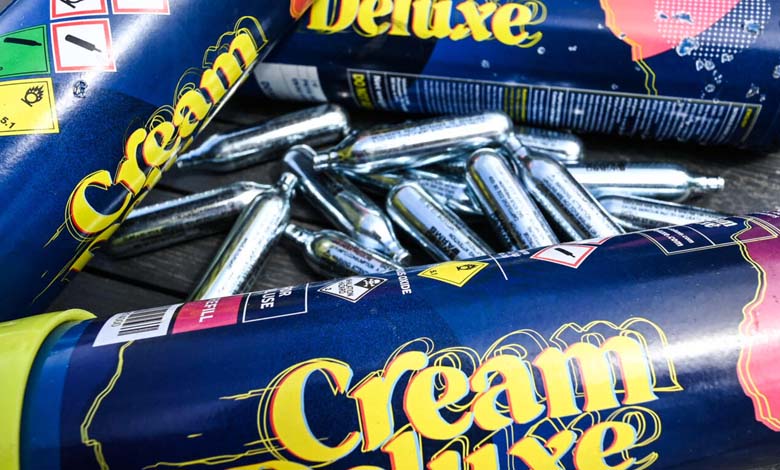Germany: Calls to Ban the Sale of Laughing Gas to Minors

Once limited to medical settings or food industry use, nitrous oxide—commonly known as “laughing gas”—has seen a troubling rise in recreational use, especially among teenagers. Initially used as an anesthetic in dental and medical procedures and also found in whipped cream dispensers, nitrous oxide is now widely consumed for its brief euphoric effects. In Germany, the growing popularity of this practice has alarmed health experts and government officials, many of whom are now pushing for legal restrictions on access to the substance for minors.
-
Florida Enacts Law Restricting Social Media Use for Minors
-
Libya: Strong Warning to TikTok Celebrities
Typically inhaled from small metal canisters, laughing gas is widely available in shops and online. Though it produces a temporary sense of euphoria and giddiness, its health risks—particularly when misused—are becoming a matter of serious concern.
Widespread use and easy availability
What makes the issue particularly pressing in Germany is the normalization of laughing gas use among young people. It’s cheap, easily accessible, and often mistakenly perceived as harmless. This combination has made it especially attractive in social settings like parties and festivals. Just a few breaths of the gas can trigger fits of laughter, feelings of lightness, or mild hallucinations—hence its nickname. But experts warn that frequent or high-dose usage can cause neurological damage, spinal cord injuries, or even loss of consciousness. Hospitals in several German cities have reported an uptick in emergency admissions linked to nitrous oxide abuse, particularly among adolescents and young adults.
-
Shocking Truth About Child Crimes on Social Media
-
Microsoft is testing the use of the Xbox app on smartphones without a controller
A legal grey area fueling the problem
Unlike many other recreational drugs, nitrous oxide is not currently classified as a controlled substance under German narcotics law. This legal loophole makes it difficult to regulate. In response, growing numbers of lawmakers and public health organizations are calling for tighter controls, especially to restrict sales to anyone under 18. Several German states have already voiced support for stronger legislation, drawing inspiration from countries like France, the Netherlands, and the UK, which have recently passed laws to limit youth access. In Germany, the federal youth minister and several MPs have advocated for immediate action, arguing that protecting young people from this emerging threat should be a national priority.
A lack of awareness and education
Beyond the legal aspects, many health professionals emphasize the urgent need for better awareness and education. Many teens are unaware of the neurological and psychological risks associated with laughing gas use.
-
Egypt: Official Campaign against “Fake” Accounts of Public Figures
-
How Psychologists Discover Your “Personality” Through Social Media
While some awareness campaigns have begun to appear in schools and on social media, their reach remains limited.
Authorities are urging a coordinated effort from families, educators, influencers, and healthcare providers to address the issue. Despite its reputation as a “fun” or “party” gas, nitrous oxide can have serious long-term consequences and even lead to dependency if used repeatedly.
As Germany faces a growing wave of nitrous oxide use among minors, calls for stricter regulations are becoming louder. While banning sales to individuals under 18 seems like a necessary first step, experts warn it won’t be enough on its own. Meaningful prevention requires a holistic approach that includes legislation, public education, and awareness. Only by combining these efforts can the country truly protect its youth from the dangers of this deceptively harmless gas. With rising popularity and increasing health risks, the time to act is now—before an avoidable public health crisis becomes reality.












